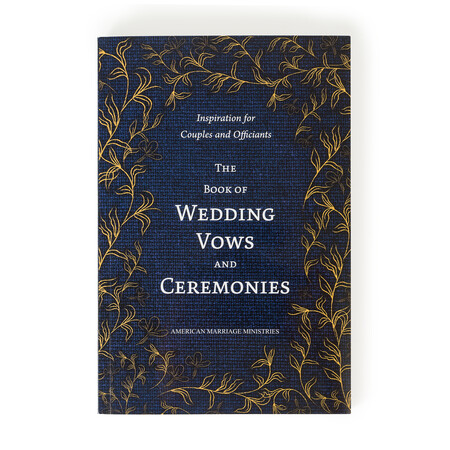(a) (1) For purposes of this subsection, “chief executive officer” means the mayor of an incorporated municipality. If an incorporated municipality does not have a mayor, then “chief executive officer” means the president of the legislative body of the incorporated municipality. If an incorporated municipality does not have a mayor or a president of the legislative body, then “chief executive officer” means the presiding officer of the legislative body of the incorporated municipality.
(2) The following individuals over 18 years of age may solemnize a marriage between individuals who may lawfully enter into the matrimonial relation:
a. A clergyperson or minister of any religion who resides in the State, provided he or she is registered with the Clerk of the Peace in the county where he or she resides.
b. A clergyperson or minister of any religion who does not reside in the State, provided he or she is registered with the Clerk of the Peace in the county where the marriage ceremony is to be performed.
c. A current or former judge of this State’s Supreme Court, Superior Court, Family Court, Court of Chancery, Court of Common Pleas, or Justice of the Peace Court.
d. A current or former federal judge or magistrate with jurisdiction over this State.
e. A current or former Clerk of the Peace of a county of this State, within the county in which the Clerk holds or held that office.
f. The chief executive officer of an incorporated municipality of this State, within the corporate limits of that municipality.
(3) For good cause being shown, the Clerk of the Peace for the county in which a marriage is to be performed may allow by written authorization all of the following to solemnize a marriage between individuals who may lawfully enter into the matrimonial relation:
a. A current or former judge of another state’s judiciary.
b. A current or former federal judge or magistrate with jurisdiction over a state other than this State.
c. A current Clerk of the Peace from another county within this State.
(4) Marriages shall be solemnized in the presence of at least 2 reputable witnesses who are at least 18 years of age and who shall sign the certificate of marriage as prescribed by this chapter. Marriages may be solemnized or contracted according to the forms and usages of any religious society or in an entirely secular manner. No marriage shall be solemnized or contracted without the production of a license issued pursuant to this chapter.
(b) The Clerk of the Peace in each county shall maintain an online registry through which clergypersons or ministers of any religion must register.
(1) Upon registering, registrants shall receive a registration card online bearing the registrant’s personal registration number. That registration number must be entered on the certificate of marriage of each marriage ceremony performed by the registrant.
(2) Once registered with a Clerk of the Peace in any county, a registrant’s name will be added to a statewide registry accessible to the public online.
(3) Once registered with a Clerk of the Peace in any county, a registrant will be authorized to solemnize marriages statewide.
(c) Any clergyperson or minister who, while not registered in accordance with this section, solemnizes a marriage shall be subject to a noncriminal penalty imposed by the Clerk of the Peace in the county where the marriage was performed, which shall include suspension or revocation of authorization to solemnize further marriages in the State.
(d) In the case of absence or disability of the duly elected Clerk of the Peace, the chief deputy or, if there is no chief deputy, a deputy or acting deputy employed in the office of and appointed by the Clerk of the Peace, shall be authorized to solemnize marriages.
(e) Whoever, not being authorized by this section, solemnizes a marriage, shall be fined $100, and in default of the payment of such fine shall be imprisoned not more than 30 days, and such marriage shall be void, unless it is in other respects lawful and is consummated with the full belief of either of the parties in its validity.
(f) Other than as provided in this subsection, nothing in this section shall be construed to require any individual, including any clergyperson or minister of any religion, authorized to solemnize a marriage to solemnize any marriage, and no such authorized individual who fails or refuses for any reason to solemnize a marriage shall be subject to any fine or other penalty for such failure or refusal. Notwithstanding the preceding sentence, a Clerk of the Peace who issues a marriage license, or a deputy thereof, shall be required to perform a solemnization of such marriage if requested by the applicants for such license.
(Code 1852, §§ 1438-1440; 17 Del. Laws, c. 207, § 9; 26 Del. Laws, c. 244, § 6; 27 Del. Laws, c. 261, § 2; Code 1915, §§ 2141, 2993; 32 Del. Laws, c. 182, § 1; Code 1935, §§ 2434, 3486; 13 Del. C. 1953, § 106; 49 Del. Laws, c. 220, § 12; 54 Del. Laws, c. 126, § 1; 57 Del. Laws, c. 129, § 1; 59 Del. Laws, c. 34, § 1; 63 Del. Laws, c. 21, §§ 1, 2; 63 Del. Laws, c. 403, § 1; 70 Del. Laws, c. 30, § 1; 70 Del. Laws, c. 186, § 1; 70 Del. Laws, c. 307, §§ 1, 2; 71 Del. Laws, c. 289, § 2; 72 Del. Laws, c. 82, § 1; 75 Del. Laws, c. 113, § 1; 76 Del. Laws, c. 24, § 1; 77 Del. Laws, c. 272, §§ 1-3; 79 Del. Laws, c. 19, § 2; 80 Del. Laws, c. 210, § 1; 82 Del. Laws, c. 95, § 1.;)
Marriage Law Tag(s)
solemnization of marriage
Back to Delaware Marriage Laws







